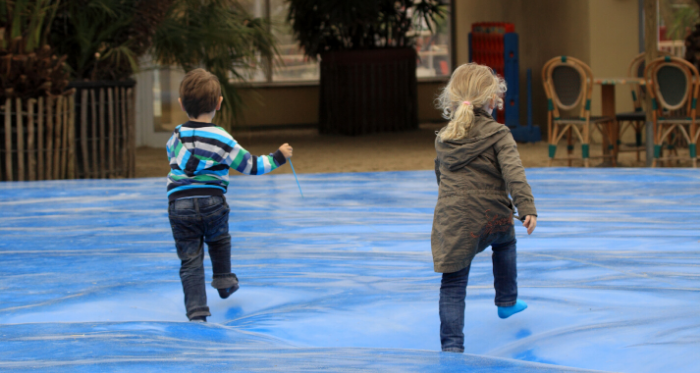
The majority of cured patients are suffering from physical and psychosocial late effects. The research centre for childhood cancer will initiate new research on how to enhance the childrens' quality of life. Photo: Colourbox
22-04-2020
National research centre for childhood cancer (CONTROL) will facilitate national Danish collaboration on paediatric oncology research across disciplines and fields. Research collaborations are already initiated, and the national coordination is expected to contribute to more targeted initiatives.
Gathering all Danish research activities within paediatric oncology will strengthen and develop treatment initiatives by a more efficient exchanging of knowledge and data across the country. Professor and consultant Kjeld Schmiegelow, who manages the centre in collaboration with professor and consultant Henrik Hasle from Aarhus University Hospital, explains:
"CONTROL will function as a research hub for all Danish research on paediatric oncology. Relatively few research units in Denmark specialise in childhood cancer, and the gathering of activities and closer collaboration will pave the way for even more exchanging of knowledge across institutions", Kjeld Schmiegelow says.
New structure to improve use of data
The centre aims to increase the overall 5-year survival from 80% to 90%, lessen side effects and late effects from treatment and enhance the children's quality of life. A key area is to benefit even more from the unique Danish data registries by developing a new data structure to handle big data.
"CONTROL will develop a big data structure for storing data while at the same time ensuring access to relevant clinical and population registries. CONTROL draws on existing expertise, i.a. from Rigshospitalet, Technical University of Denmark (DTU) and Statens Serum Institut (SSI) for building such a structure", Kjeld Schmiegelow says.
Interdisciplinary research in all aspects of childhood cancer
The research is organised in 17 work packages that cover extensive interdisciplinary research fields from diagnostics to genetic analysis and ethics as well as the development of new treatments and insights in quality of life by activity and play and how to cope with late effects.
"The 17 work packages connect biomedical research activities from genetics to pharmacology, with psychosocial research activities, including social inequality, play and activity, as well as separate work packages for research in data and ethics", Kjeld Schmiegelow explains.
An international advisory board of leading paediatric oncologists and researchers has been formed. The advisory board will contribute with perspectives on the academic and strategic activities of the centre. Accordingly, the national coordination of Danish research activities is expected to further strengthen international collaboration within the field.
